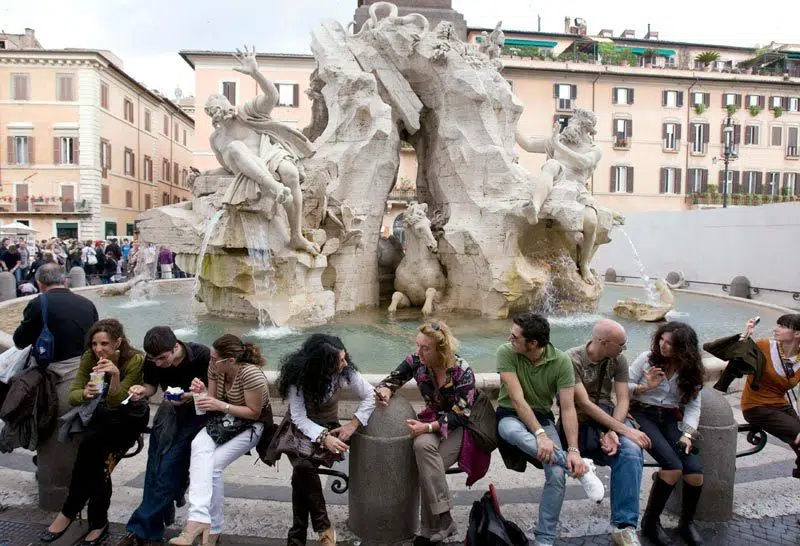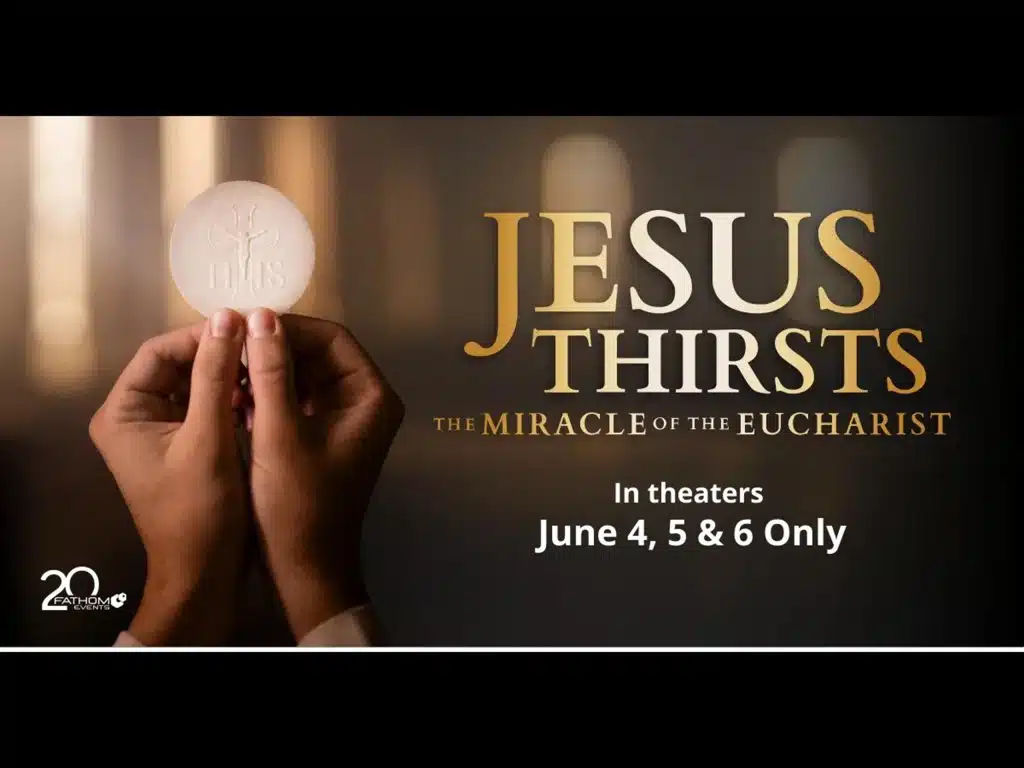VATICAN CITY – On the eve of its world premiere, “Angels and Demons” was a film in desperate search of controversy.
At a press conference in Rome May 3, director Ron Howard tried to pick a fight with the Vatican, suggesting that the long arm of the Holy See was somehow behind unspecified problems in shooting the film, a pseudo-religious thriller based in Rome.
The Vatican wasn’t taking the bait, though. The only real criticism in Italy on the eve of the film’s premiere came from a 102-year-old Italian bishop – not exactly the kind of publicity storm that marketing gurus dream about.
Tom Hanks, the film’s star, put his finger on the problem at the press conference when he was asked if the movie’s marketing people might try to exploit potential conflict with the Vatican.
“Every movie is exploited by the marketing people. There’s no such thing as a movie that is not exploited by the marketing people,” Hanks said.
“The marketing department of any studio would love to be able to create controversy over their films. But they can’t do it on their own; they need a partner,” he said.
The movie, based on a novel by Dan Brown, was set to premiere in Rome May 4, and was to open in the United States May 15. It tells the tale of a secret society that kidnaps papal candidates at the start of a conclave, forcing the Vatican to turn to the mystery-solving symbologist Robert Langdon, played by Hanks.
Howard began the press conference with a string of vague accusations against the Vatican. It seemed, he said, that “sort of through back channels and so forth, the Vatican had exerted some influence” to prevent the crews from shooting scenes in a couple of areas where a particular church was in the background.
“I suppose we could have contested this. We didn’t,” he said.
He added that a screening of the film – or a reception, he wasn’t quite sure – was moved away from a venue near St. Peter’s Square, “and I suppose the Vatican had some sort of influence over that.”
“Was I surprised? No. Am I a little frustrated by it at times? Sure,” Howard said.
The Vatican spokesman, Jesuit Father Federico Lombardi, declined to comment on Howard’s accusations, saying they were merely designed to generate publicity for the film.
Howard also cited the case of retired Italian Bishop Antonio Mennonna, 102 years old, who has signed a legal complaint saying the movie is full of historical inaccuracies and misrepresentations of Christianity.
Howard said his company had earlier offered to screen the film for some bishops and others, but that the invitation was never taken up. In any case, he said, if anyone feels the film will be offensive to them, they shouldn’t see it.
That prompted Hanks, who had tongue in cheek throughout the press conference, to interject: “No, no, don’t even go! Stay away please! We beg of you!”
Hanks had fun with other inquiries designed to provoke debate with the church. After a reminder to keep questions germane to the film, one reporter asked Hanks if he were a spiritual person and what he thought about the recent controversy over the pope and condoms.
Hanks responded: “Oh, that’s germane to the film. I am a spiritual man and because I’m happily married for 21 years, I really don’t know what a condom is anymore.”
Howard, who directed “The Da Vinci Code,” also based on a Dan Brown novel, said that, whatever church leaders may think of these books and films, many people find that it gets them thinking about what they believe. As a result, he said, church attendance swells and Bible study groups spring up.
“I think that’s a positive and constructive thing,” he said.
Brown, who made a rare public appearance at the press conference, said he first got the idea for “Angels and Demons” while on a tour near the Vatican. The tour guide mentioned that popes once had to flee along a Roman passageway to escape their enemies, and that got Brown thinking about the scientific “enemies” of the Vatican, which he said “seemed like too good an idea to let go.”
In the book “Angels and Demons,” modern members of a secret society called the Illuminati plan to destroy the Vatican with antimatter. The Illuminati were a group formed in Bavaria in the late 1700s that historians say survived for only nine years. Conspiracy buffs have speculated that the Illuminati exist yet today, secretly controlling world events.
Brown was asked whether he really believed the Illuminati still exist.
“Did they ever?” he said abruptly. Then he added a defense of his approach to his novels.
“These are fictional stories built around real-world topics. And these stories, it is my hope, spark a lot of interest and research on people’s own, to figure out what in these stories is fictional, what is real,” he said.
Several weeks ago, Archbishop Velasio De Paolis, president of the Prefecture for the Economic Affairs of the Holy See, signaled that the Vatican would not be jumping into a debate over “Angels and Demons.” He said people should be cautious about “the boomerang effect” of calling for a boycott because it could translate into unintended publicity for the movie.
He said the Vatican wasn’t worried about people of faith falling for the book and movie’s anti-Christian inventions. The Vatican believes Christians are strong – inoculated by centuries of persecution and testimonials of faith,” he said.


